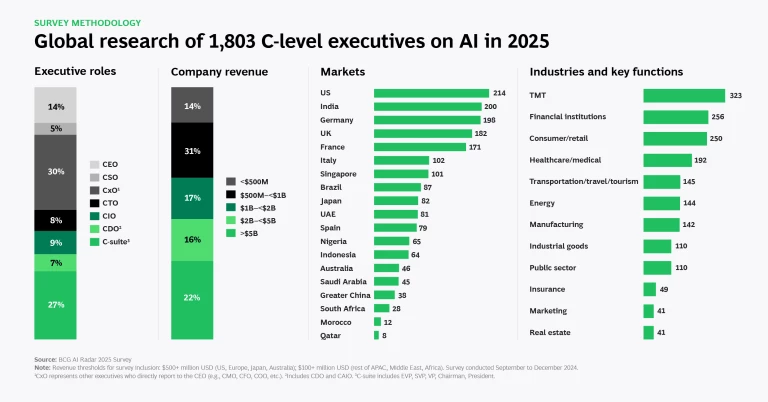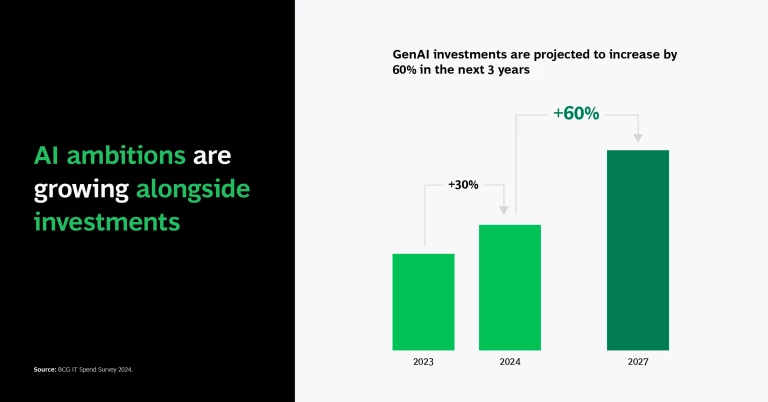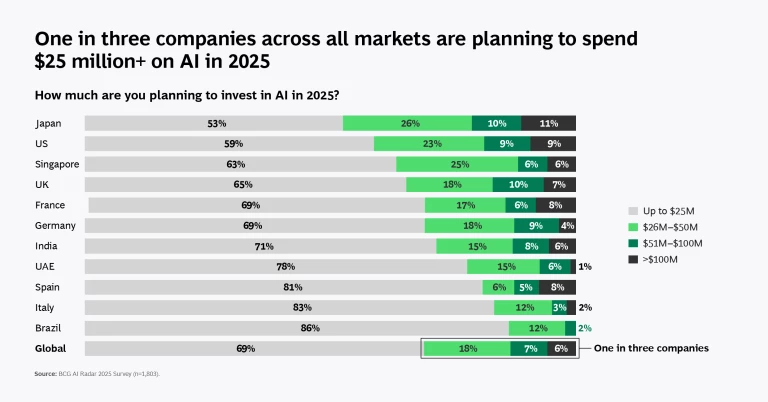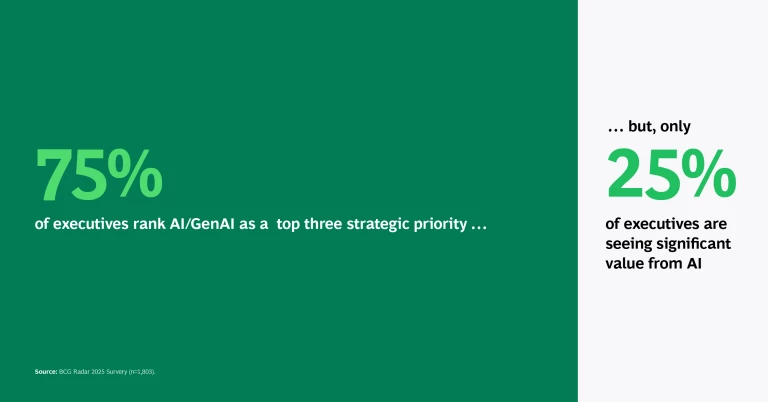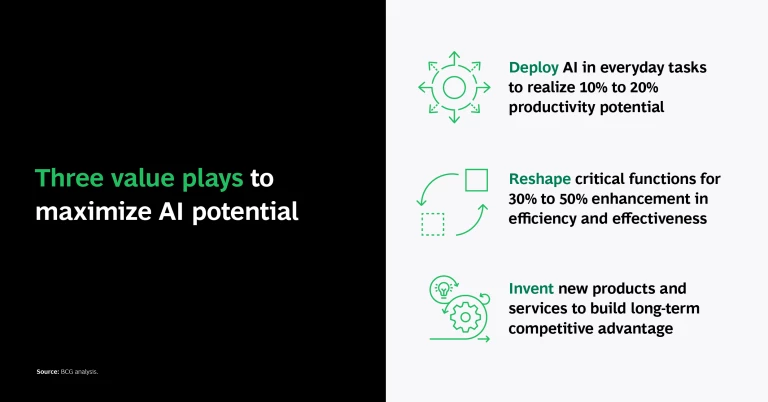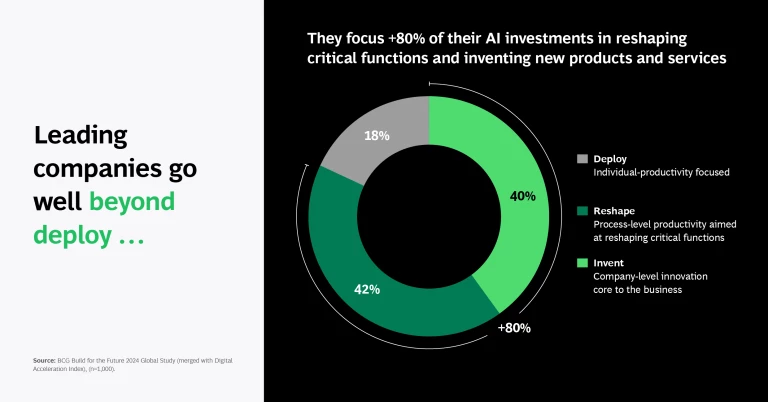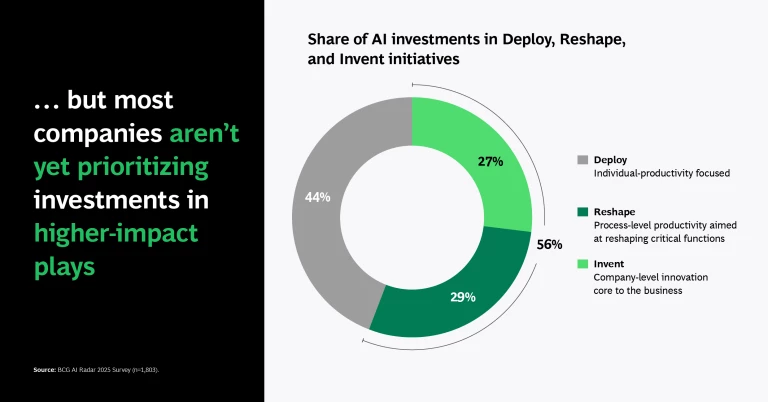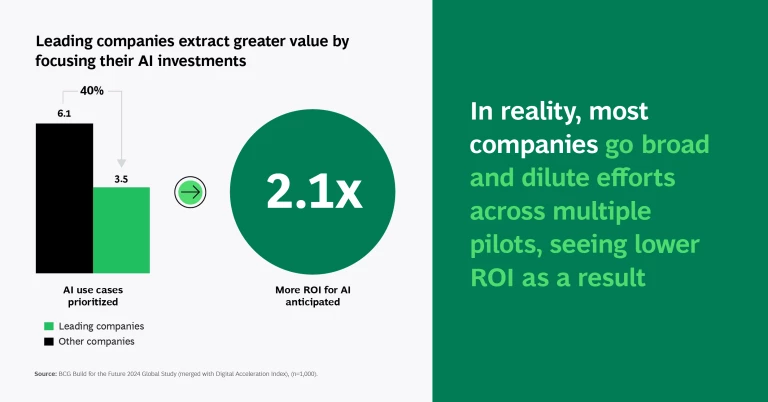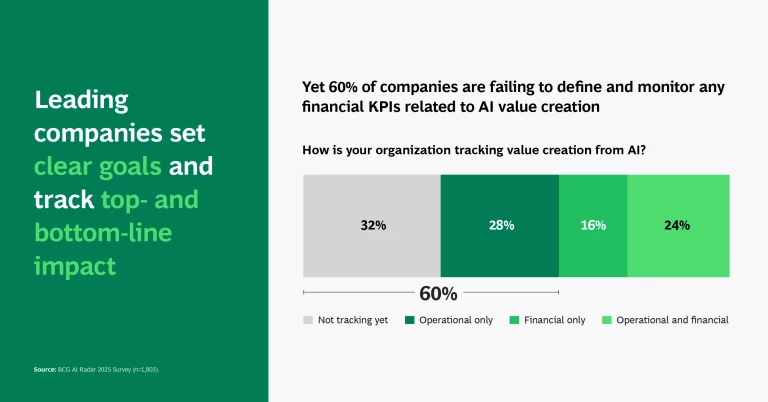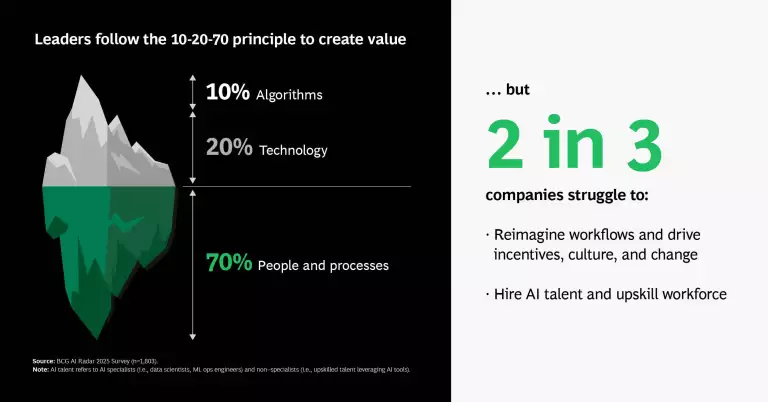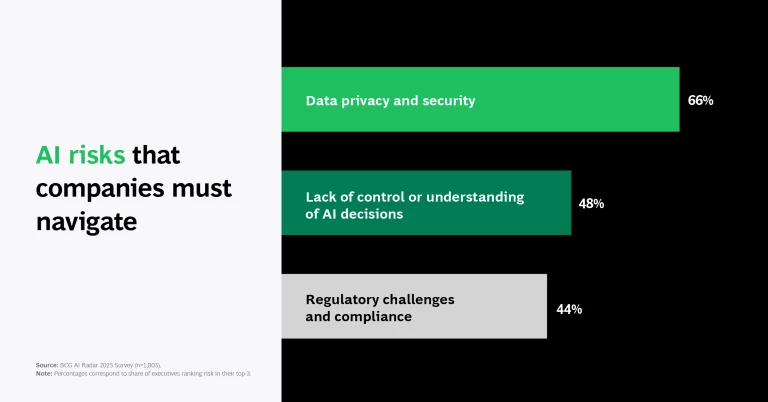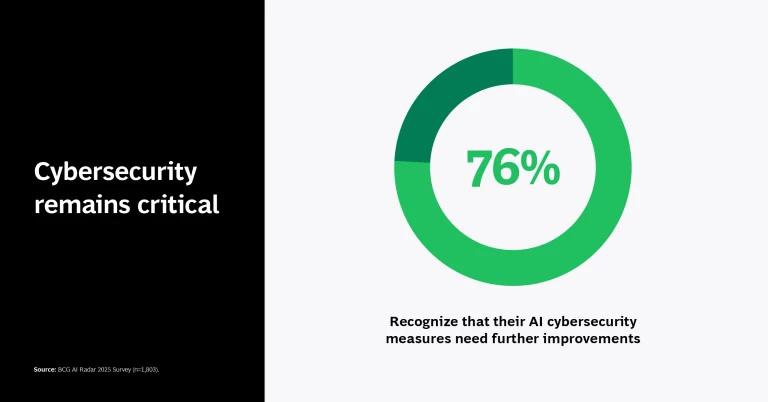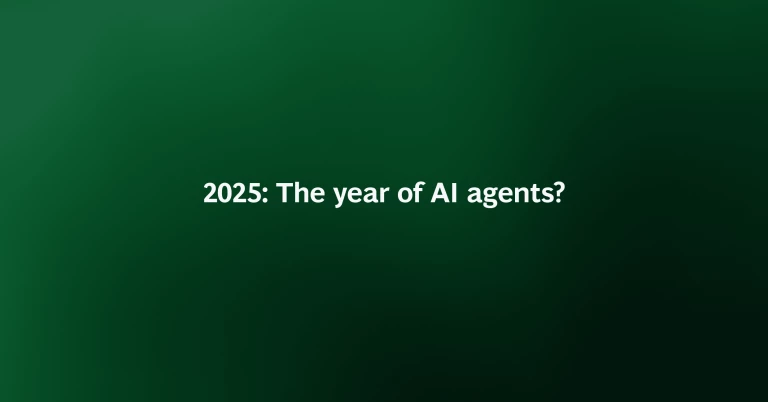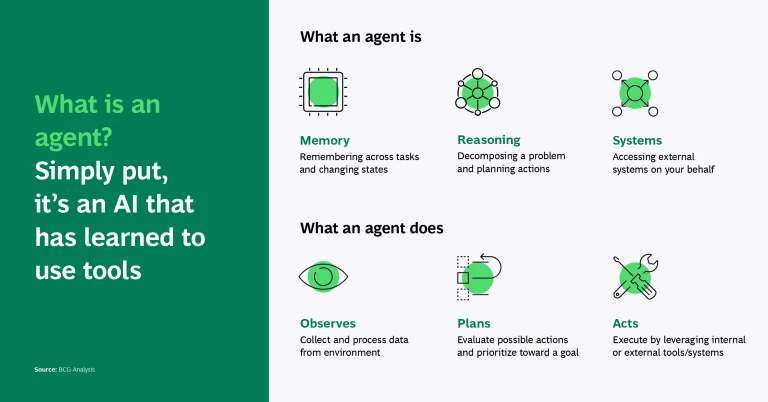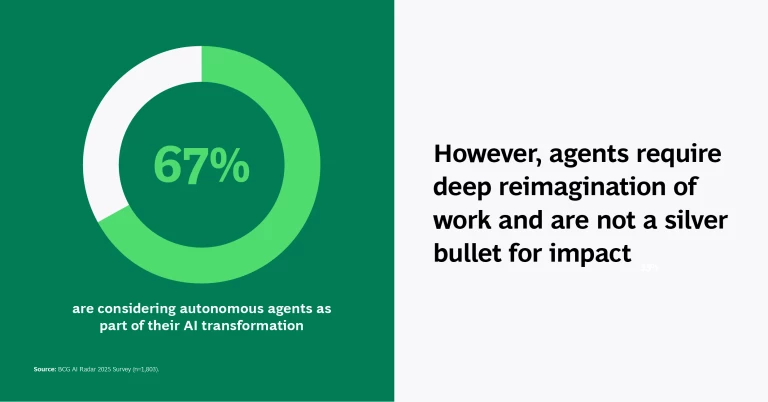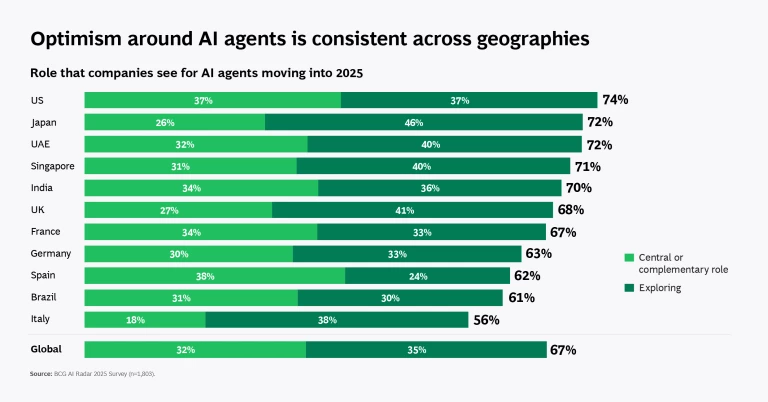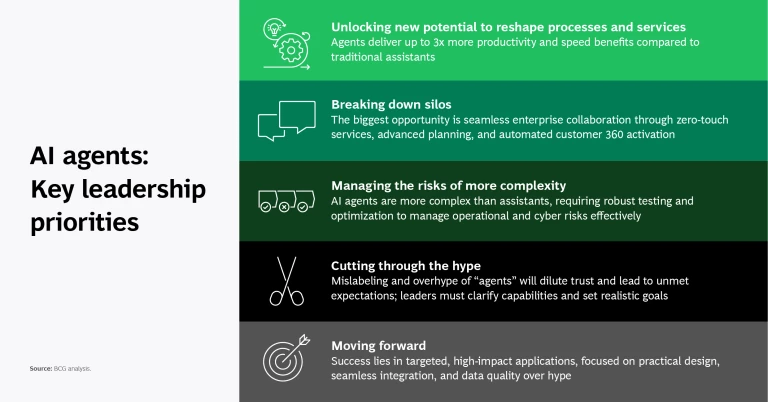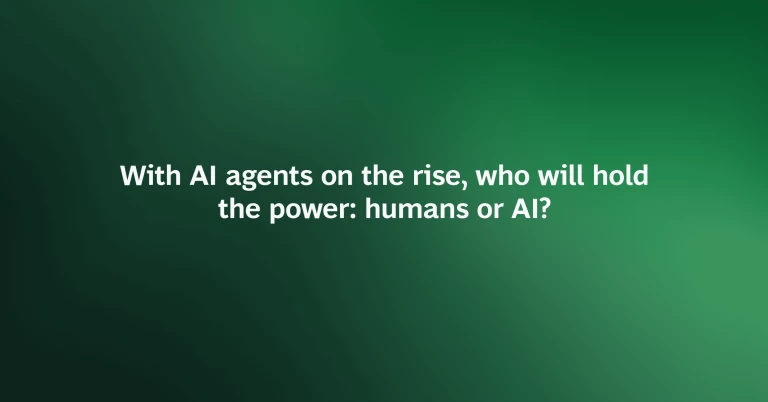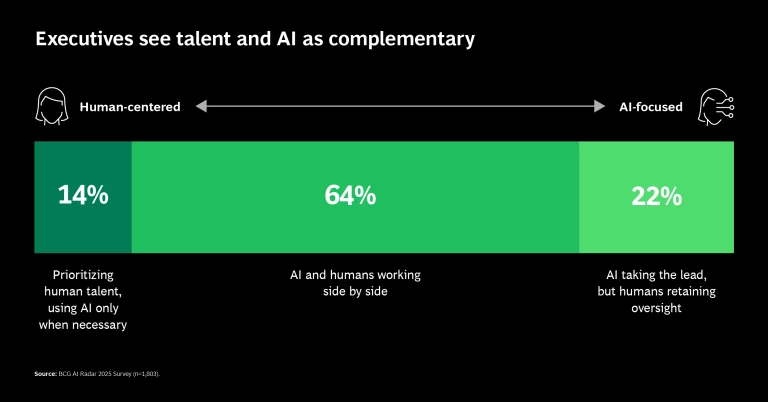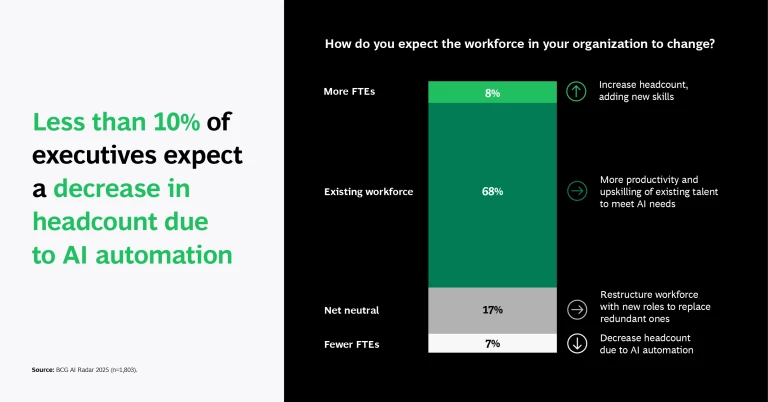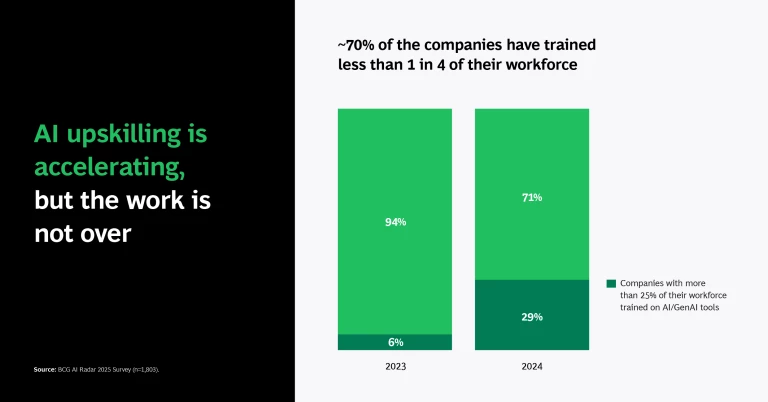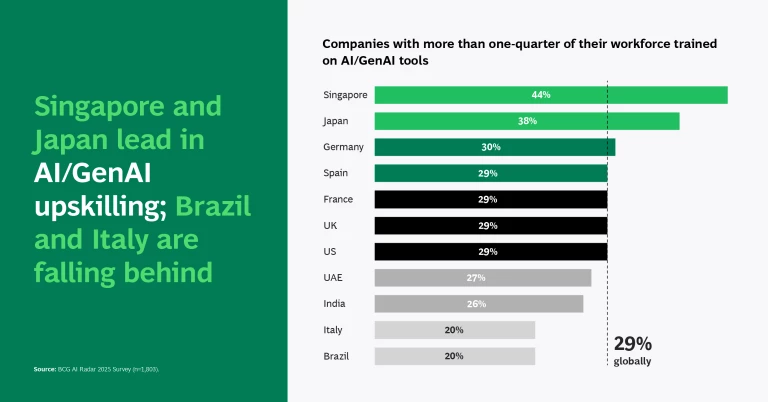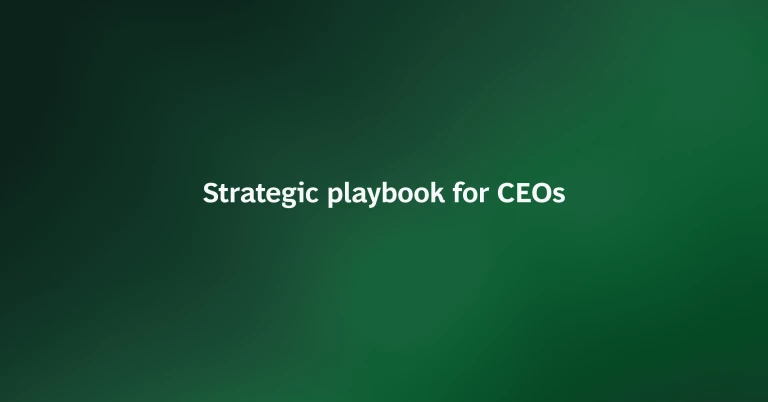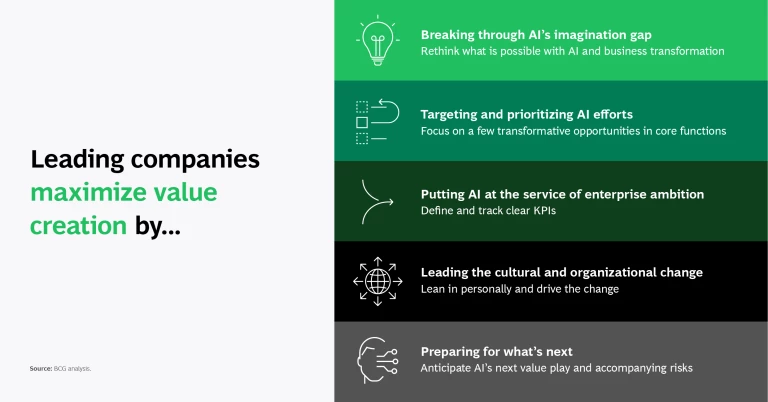This article reflects 2025 survey data. Explore the 2026 BCG AI Radar for the latest insights on the quest for ROI on AI investments.
The initial excitement around AI, especially generative AI (GenAI), is evolving into a deeper focus on execution and results. AI’s importance in the C-suite is steadfast; three-quarters of executives name it as a top-three strategic priority for 2025.
Companies also plan to invest more in GenAI in 2025 than last year—even as they realize that the intuitive, friendly feel of GenAI masks the discipline, commitment, and hard work required to introduce these technologies into the workplace.
The one-quarter of executives who say their companies have created significant value from their AI initiatives have done so by focusing on a small set of AI initiatives. They scale these initiatives swiftly, changing core processes, upskilling their teams, and systematically measuring operational and financial returns.
For the second year, the BCG AI Radar global survey has captured the mood of business executives about AI. More than 1,800 executives weighed in on their wins and their struggles with the technology.
The accompanying slideshow lays out the findings and insights of this survey in greater detail—especially the emergence of an impact gap between aspirations and outcomes. Key findings include:
Most companies aim too low, prioritizing smaller-scale, productivity-focused initiatives. Leading companies allocate more than 80% of their AI investments to reshaping key functions and inventing new offerings.
Companies are diluting their efforts by placing too many AI bets. Leading companies focus on depth over breadth, prioritizing an average of 3.5 use cases, compared with 6.1 for other companies. The leaders anticipate generating 2.1 times greater ROI on their AI initiatives than their peers.
Too few employees have been trained on AI. Less than one-third of companies have upskilled one-quarter of their workforce to use AI. That’s better than a year ago, but far from where companies need to be for workers to feel comfortable with such a job-threatening technology.
Most companies do not track financial KPIs of their AI initiatives.
Actions to Bridge the Gap
Winning with AI is a sociological challenge as much as a technological one. The soft stuff—reimagining workflows, upskilling talent, and driving organizational change—turns out to be the hard stuff.
Top-performing organizations follow the 10-20-70 principle. They dedicate 10% of their efforts to algorithms; 20% to data and technology; and 70% to people, processes, and cultural transformation. This principle also applies as companies introduce AI agents—two-thirds of companies are exploring the potential of these AI-powered systems that can perceive, plan, and act on their own. Companies must embed these agents into workflows so that they complement and improve the work of humans.
Human workers have staying power. Two-thirds, or 68%, of companies expect to maintain the size of their workforce. AI will never reach its potential if workers feel disempowered and displaced.
Focus, focus, focus. To unlock AI’s potential, CEOs must take a purposeful, hands-on approach by:
- Breaking through the imagination gap. Rethink ways of working and organizational and operating models.
- Targeting and prioritizing AI efforts. Focus on a few strategic opportunities while also encouraging bottom-up, exploratory efforts.
- Putting AI at the service of enterprise ambition. Manage AI like a transformation, with clear outcomes and rigorous value tracking.
- Driving the cultural and organizational change. Reimagine workflows, upskill teams, and foster a culture of AI innovation.
- Preparing for what’s next. Anticipate AI’s next value play and accompanying risks.
In early 2025, AI sits at a point along the potential–reality continuum. Investments are growing, ambitions are rising—but so is a sense of the work that lies ahead. Keeping the technology on track requires disciplined execution, a clear focus on value, and a workforce ready to adapt.

